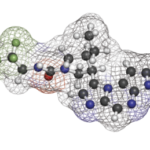
ajt/shutterstock.com
Introduction & Objectives
The primary treatment goals for rheumatoid arthritis (RA)—symptom reduction and prevention of joint damage leading to permanent disability—require intervention with disease-modifying anti-rheumatic drugs (DMARDs), including first-line conventional synthetic DMARDs, biologic DMARDs and targeted synthetic DMARDs.
Currently, methotrexate (MTX) is the most widely accepted initial therapy for RA, supported by its well-known long-term efficacy and safety profile, current guidelines from EULAR and the ACR, and few restrictions (i.e., cost) to patient access. However, remission is achieved in only a minority of patients receiving MTX, and acceptable disease control is achieved in at most 60% of patients. For patients who have an insufficient initial response or are intolerant of or lose response to MTX over time (~80%), conventional synthetic DMARDs other than MTX or the addition of a biologic DMARD or targeted synthetic DMARD to a conventional synthetic DMARD is recommended to rapidly attenuate the potentially irreversible impact of active disease. Previous studies in MTX-naive patients with moderately to highly active RA and poor prognosis (i.e., seropositivity for rheumatoid factor [RF] and anti-citrullinated protein antibodies [ACPAs] and radiographic damage at baseline) have shown that MTX monotherapy was less effective than its combination treatments.
The JAK enzymes (JAK1, JAK2, JAK3 and TYK2) are important mediators of multiple cytokine-signaling pathways for normal cellular processes, as well as for immune-mediated inflammation. Orally administered JAK inhibitors (targeted synthetic DMARDs; jakinibs) are approved for their established efficacy as monotherapy and combination therapy (with conventional synthetic DMARDs), vs. biologic DMARDs, across diverse RA patient populations.
The SELECT-EARLY MTX-controlled trial was designed to study the safety and efficacy of upadacitinib, a potent, reversible jakinib, for monotherapy in patients with moderately to highly active RA and poor prognostic features who are either naive for or have limited exposure to MTX.
Methods
Patients (n=947) were randomized 1:1:1 to receive once-daily upadacitinib 15 mg or 30 mg or weekly MTX (7.5–20 mg/week) for 24 weeks. The primary end points were the proportion of patients who met the ACR 50% improvement criteria (ACR50) at week 12, and the proportion in whom a Disease Activity Score in 28 joints using the C-reactive protein level (DAS28-CRP) of <2.6 was achieved at week 24. Data from the study are presented through week 24.
Results
At baseline, the median disease duration was 0.5 years (range 0–44 years). A total of 840 patients (89%) completed 24 weeks of treatment. The study met both primary end points for upadacitinib 15 mg and 30 mg vs. MTX (i.e., the ACR50 was achieved at week 12 in 52% and 56% of participants, respectively, vs. 28% [P<0.001], and DAS28-CRP <2.6 was achieved at week 24 in 48% and 50%, of participants respectively, vs. 19% [P<0.001]). Statistically significant and clinically meaningful improvements in multiple patient-reported outcomes (PROs) were recorded for both upadacitinib arms vs. MTX. Overall, 88%of subjects receiving upadacitinib 15 mg and 89% of subjects receiving 30 mg had no radiographic progression (modified total Sharp score ≤0) compared with 78% of those receiving MTX (P<0.01).
Through week 24, the frequency of treatment-emergent adverse events was similar between the MTX arm (65%) and upadacitinib 15 mg arm (64%), but slightly higher in the upadacitinib 30 mg arm (71%). Six deaths were reported (two in the upadacitinib 15 mg arm, three in the upadacitinib 30 mg arm, and one in the MTX arm).
Conclusion
The findings of the SELECT-EARLY study indicate that, compared with patients receiving methotrexate, patients receiving either dose of upadacitinib monotherapy experience significant improvements in clinical, radiographic and patient-reported outcomes.
Refer to the full study for all source material.
Excerpted and adapted from:
van Vollenhoven R, Takeuchi T, Pangan AL, et al. Efficacy and safety of upadacitinib monotherapy in methotrexate-naive patients with moderately-to-highly active rheumatoid arthritis: A multicenter, multi-country, randomized, double-blind, active comparator-controlled trial. Arthritis Rheumatol. 2020 Oct;72(10):1607–1620.
